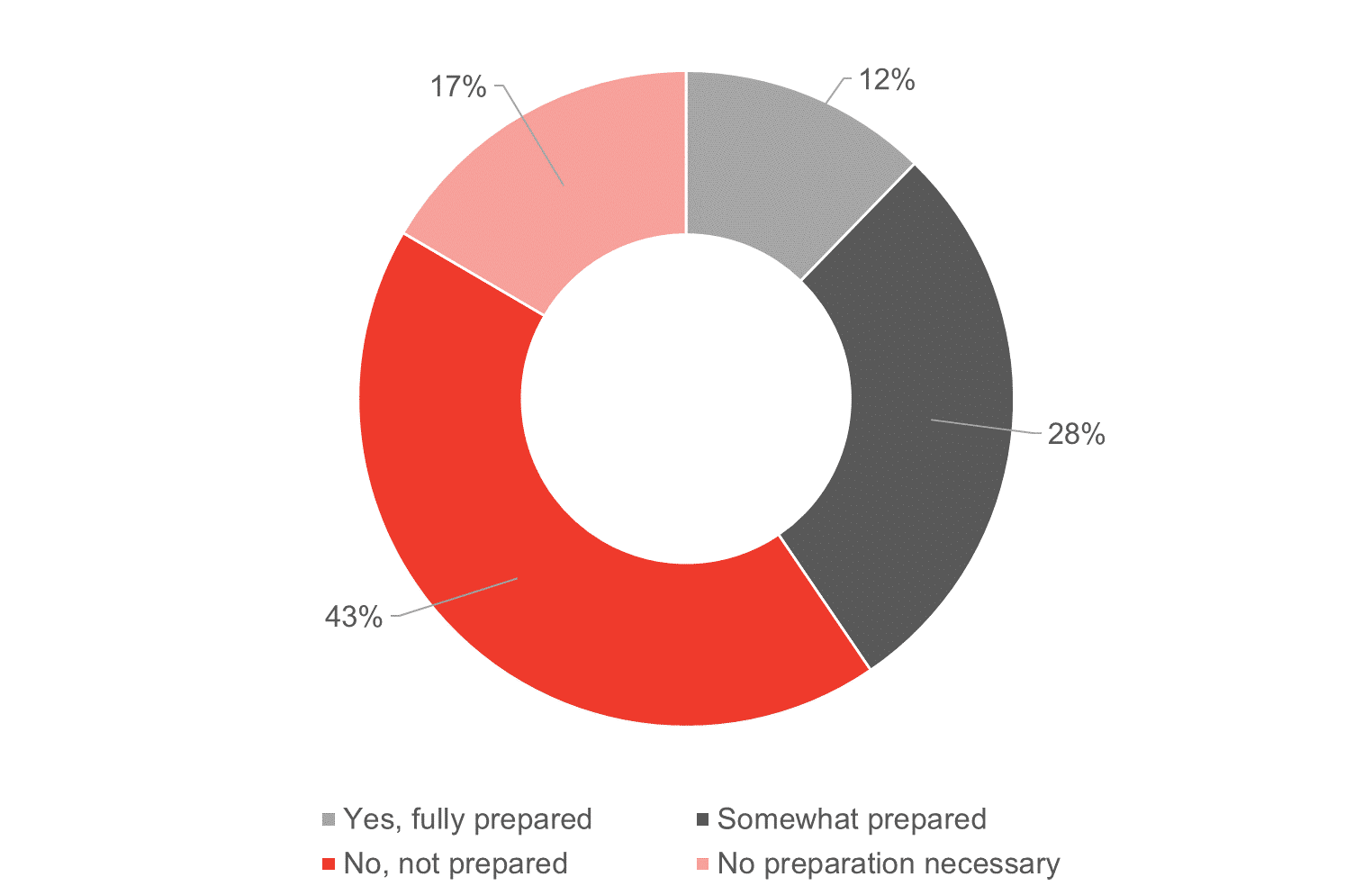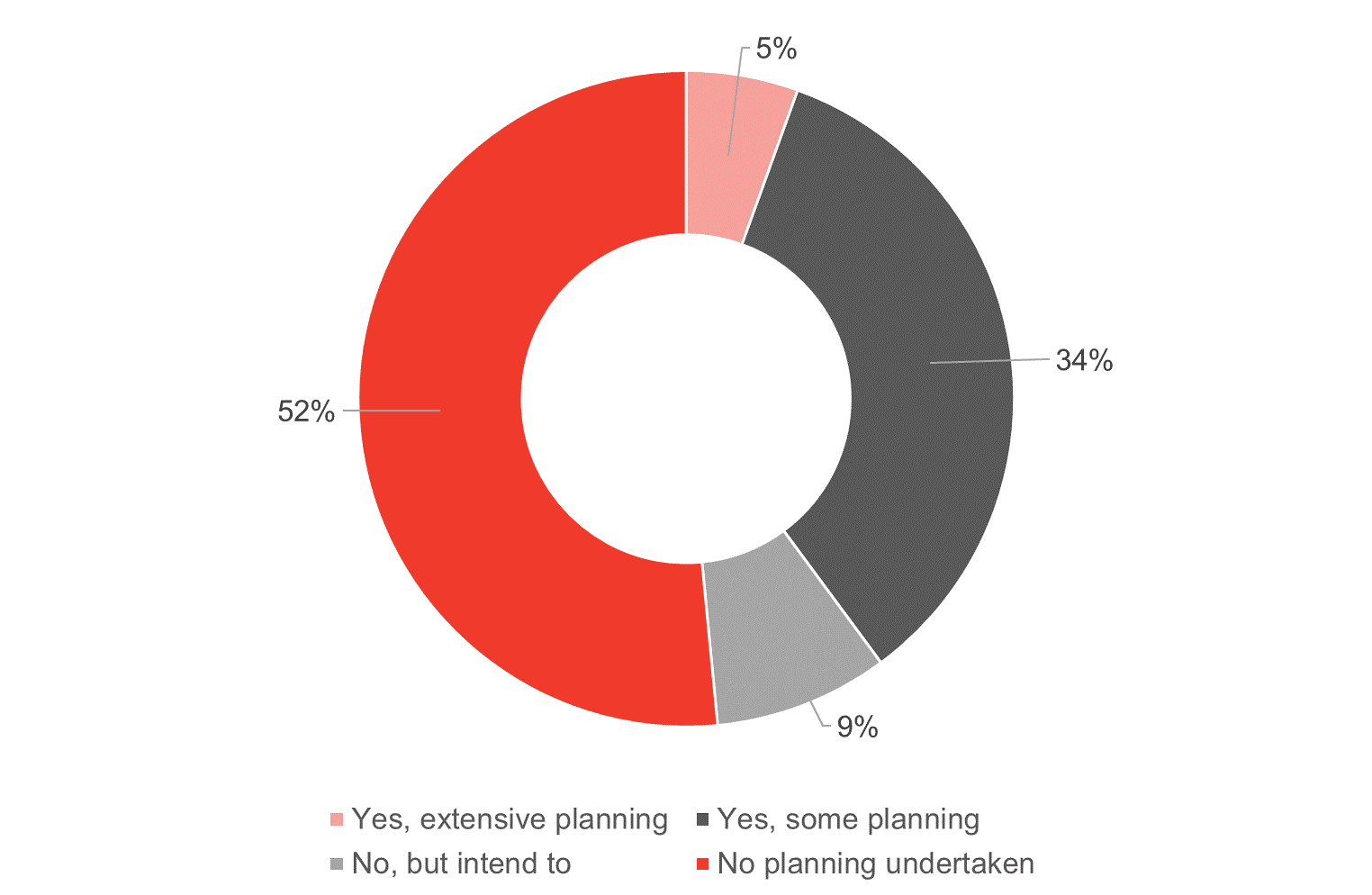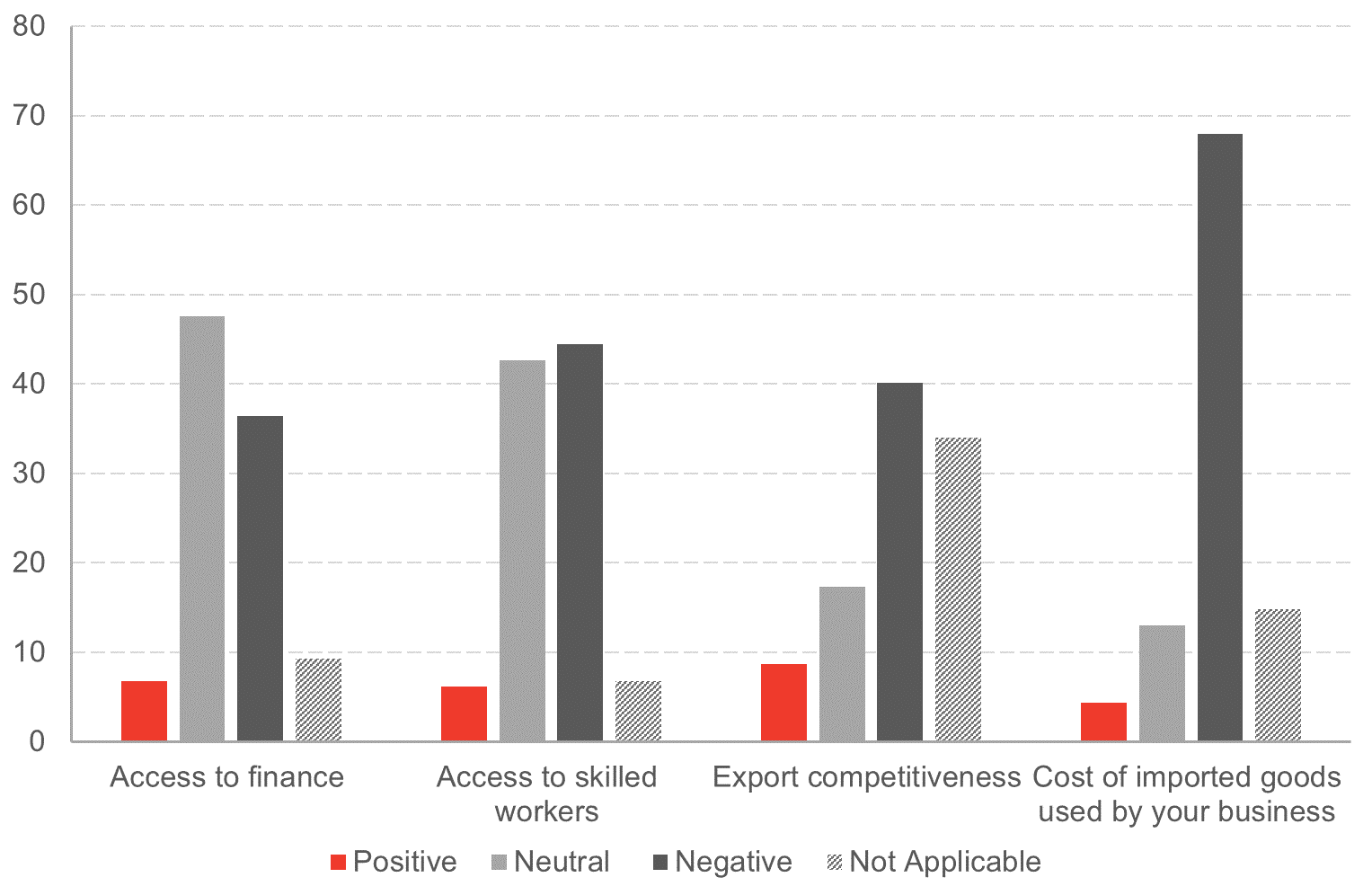With only 3 weeks to go until the UK is scheduled to leave the EU, Scottish Businesses still don’t have any certainty over the terms of the exit, and crucially, if there will be any sort of transition to future arrangements.
Ahead of a series of votes in the House of Commons next week, we’ve been asking businesses in Scotland about Brexit and their preparations for it. We asked firms from across the country, and from a variety of different sectors.
The focus was not on whether businesses believe Brexit to be good or bad, but instead, how Brexit is affecting different areas of their day-to-day activities such as investment and recruitment. Also, we were interested to find out to what extent firms have embarked upon any plans in preparation for Brexit: specifically whether they are prepared for a no deal Brexit.
This blog summarises the results of our survey.
Firstly, a bit of context.
We are now just 22 days away from exiting the EU.
Of course, different economists (and different economic models) will disagree over the precise impacts of Brexit over the long-term. Most suggest it will act as a headwind to our growth prospects.
But the overwhelming view amongst independent economists is that an immediate dislocation of trade patterns, the breaking up of supply chains and financial market uncertainties that would result from a ‘no deal’ outcome would have significant negative implications for jobs, investment and prosperity in the short-term.
The mood of business
So what does Scottish business make of all this? Here we summarise just a few of the response that we have received.
Firstly, how are businesses feeling about the outlook for the economy?
Chart 1: How optimistic are you about the outlook for the Scottish economy over the next six months?

Around than half (49%) of firms said that they were in some way pessimistic (slightly or highly pessimistic) about the prospects for the Scottish economy in the next 6 months. 22% are optimistic about the next 6 months.
We also wanted to see if any Brexit related uncertainty has been having an impact on investment, recruitment and firms undertaking new projects at the current time.
Chart 2: How has the UK’s decision to leave the European Union affected……

Four in ten reported that Brexit has had a negative impact on their current investment activity while only one in ten say it has been positive.
Furthermore almost half of companies say that it has had a negative impact on new investment (11% replying it had been positive).
Chart 3: How has the UK’s decision to leave the European Union affected……

The impact on recruitment and retention has been less striking as two thirds of firms report neither negative nor positive impact. Nevertheless, 21% reported that the UK’s decision to leave the EU has had a negative impact on their ability to retain existing staff (14% indicated that it has had a positive impact). With respect to new staff recruitment only 9% report a positive impact whereas 36% report a negative one.
Plans for firms starting any new business projects has been negatively impacted by almost a half of firms.
We were also interested in whether firms had made plans for a possible ‘no deal’ Brexit.
Chart 4: In the event that the UK leaves the European Union without a deal (the so-called ‘no deal’ Brexit scenario), do you believe that your company is prepared for this ‘no deal’ Brexit?

The overwhelming response was that firms don’t feel fully prepared for a potential ‘no deal’ Brexit outcome. Whilst this is not that surprising given the uncertainties that currently exist, the scale of the response is clearly a concern.
We also asked businesses about whether or not they had embarked upon any contingency or scenario planning to help them prepare for a ‘no deal’ Brexit. More than half reported ‘no planning undertaken’; given the scale of businesses that don’t feel prepared for Brexit this lack of scenario planning is a concern (and chimes with evidence that the UK Government published last week).
Chart 5: Has your company embarked upon any contingency or scenario planning to help prepare for a ‘no deal’ Brexit?

We asked businesses to estimate how much of their time was taken up in planning for a no-deal Brexit: the most common answer was around 10%. Most businesses who have been engaging in preparation said they spent roughly 5-20% of their time planning for this scenario.
Chart 6: What do you expect the impact of a ‘no deal’ Brexit to be for your business in the following areas?

We asked businesses about their expectations of the impact of ‘no deal’ Brexit. 45% fear it will have a negative impact on their access to skilled labour and more than 35% expect a negative impact with respect to their access to finance. Only around 7% said they forecast a positive impact.
Finally, in relation to any potential impacts on export competitiveness and imports, again negative expectations outweigh positive ones. Whilst 8% of business surveyed indicated that they expect a ‘no deal’ Brexit to have a positive impact on their export competitiveness, 40% expect a negative impact. Similarly with respect to the cost of imports 4% feel positive while 68% expect a negative impact.
With regards to access to finance in particular, businesses reported that there are a number of issues that are affecting their operations due to Brexit in general and the prospect of a no deal in particular. These include, but are not limited to:
- A feeling that banks are more reluctant to lend in general right now, particularly to small businesses;
- Experiences of European suppliers insisting upon deposits or earlier payments than previously, which is causing cash flow issues; and
- A concern that there is not finance available for the short term contingencies that firms could face in the event of a disorderly Brexit.
Summary
The mood of Scottish Businesses around a no-deal Brexit right now is fairly negative, which appears to be hampering investment in new business, new staff and new equipment. Whilst there is significant concern about the prospect of a no deal Brexit, with some companies investing in scenario and contingency planning, there are still a number of companies who have not done this, leaving significant doubts over the preparedness of the business community.
We wait to see whether the next week brings any more clarity for Scottish businesses.
Authors
The Fraser of Allander Institute (FAI) is a leading economy research institute based in the Department of Economics at the University of Strathclyde, Glasgow.